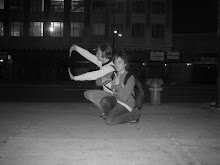But really?
Is it?
Or is it that people continuously change the way they interact with the world? Is the model of the fifties and sixties church just not effective anymore? Was church broken before that, and we just found out now? Maybe we've been trained to think that today's idea of a formalized church is something to be pursued. It kind of reminds me a little of the beginning of the Reformation.
Martin Luther decided that the Roman Catholic Church was wrong when they said you could pay to get your sins taken away, so he nails these 95 theses to a church's door essentially saying, your model of doing things is corrupt and broken.
People like Tyndale and Wycliffe changed the way everybody interacted with the Bible after centuries of only a select few with the proper education being able to read it...because the system was broken. And still we think that if we shake the worm eaten pillars of the modern church, we're heretics...but weren't the founders of the Reformation? Wasn't Paul a heretic? And Peter? And James? The problem is that we hold tight to opinions while the rafters fall all about us. Church should be in a building, there needs to be a sermon and singing. What about the community? Well, obviously we need to tack on small groups to our programming. That way people experience true community.
But what if it's wrong? What if it's wrong to spend more money on matching our carpets to our pews than to help the needy? What if it's wrong to pay the church's heating bill when we have twelve people in our "congregation" without the means to pay their own heating bills? What if the argument isn't should we sing hymns or the newest praise choruses, but how can we actually love our neighbors? How can we move from the idea of traditional church to the idea of effective Christian community?
I think the heart of the problem is that the majority of us have stopped inventing. We've grown comfortable with the way church is and so church has stagnated. The status quo is sufficient. Punching our spiritual time cards on Sunday is a no effort exercise. And if that's enough, why explore what church should become. It is what it is, right?
But what if it isn't?
